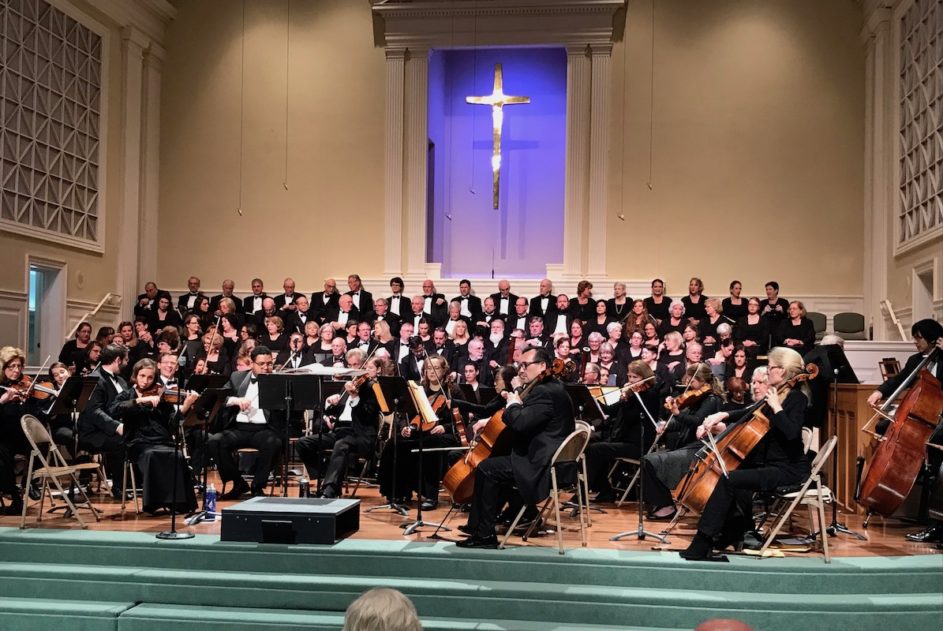The Knoxville Choral Society began a new era under its new artistic director and conductor, Dr. John Orr, with a concert at Central Bearden Baptist Church Friday night.
With a program of Handel Masterworks, Orr signaled that he expects the KCS to be substantially more than a community choir. He wants to master the great works of the choral literature.
George Frederic Handel’s greatest success as a composer came during the years he spent in England writing music in English. It’s music the Choral Society knows well and has performed throughout its history.
Orr began on familiar ground with one of Handel’s coronation anthems “Zadok the Priest,” HWV 258, written in 1727 for the coronation of King George II. It has been sung before the anointing of the sovereign at the coronation of every British monarch since George II.
Its second section “And all the People Rejoiced” and third section “God Save the King” became cherished British national anthems.
The KCS sang it well and with confidence.
The second work on the program was a different matter. “Dixit Dominus,” HWV 232, the Latin translation of Psalm 110, was written in 1707 when Handel was only 22. It is far more complex and demanding to sing.
Already established as a choral composer in Hamburg, Handel wrote “Dixit” during a trip to Italy when he hoped to increase his reputation by writing music in Latin, the language of the Catholic Church. To a certain extent, “Dixit” was the brash young Handel’s way of showing off to the Italian church music establishment.
Dixit’s rhythmic challenges, together with the required precision of singing Latin required a different effort from the KCS. It was not quite up to it. Although Orr should be credited with programming it as a signal of things to come.
Soprano Regina Santore’s, singing of the second section aria “Virgam Virtutas Tuae” (The Lord will send forth the scepter), was clear and strong. But the other soloists did not fare as well, despite having the advantage of microphones.
It’s understandable that the KCS would prefer to choose their soloists from within their ranks, instead of paid professional singers. But professionals are better trained for both the literature the KCS may be performing and the demands of being able to sing over an orchestra, as well as project above the rest of the choir.
After intermission, the program returned to singing music from Handel’s English period.
“The King Shall Rejoice,” HWV 260, also written in 1727, saw a return to the crisp English diction that has long been familiar to the choir.
Of course, the closing pieces on the program, selections from “Messiah,” HWV 56, written in 1741, was completely back on familiar ground for both the KCS and the audience at Central Baptist. The singing was bold and joyful. Soprano Ronda Johnson’s singing of the Recitative: “There Were Shepherds” was clear and especially lovely.
In addition to performances with the Knoxville Symphony on the traditional Christmas concert and a performance of Beethoven’s 9th Symphony in April, this season will see the KCS taking on movie scores.
A schedule of its concert appearances can be found at www.knoxvillechoralsociety.org.

